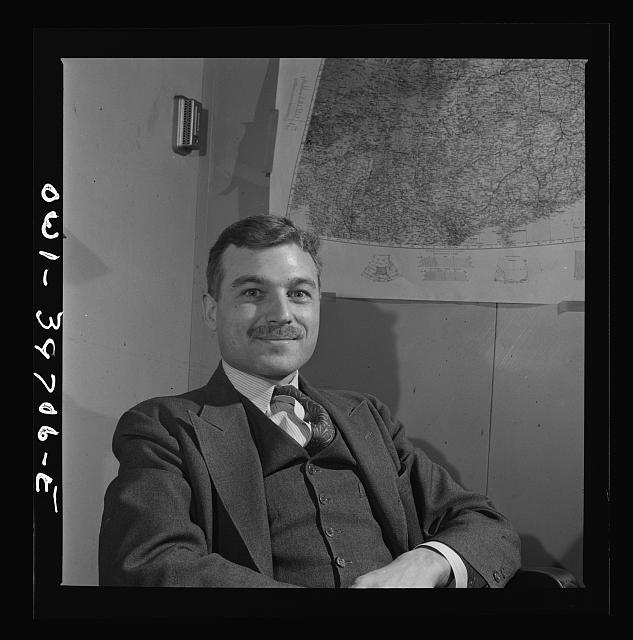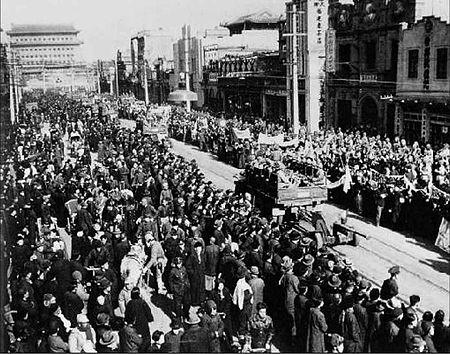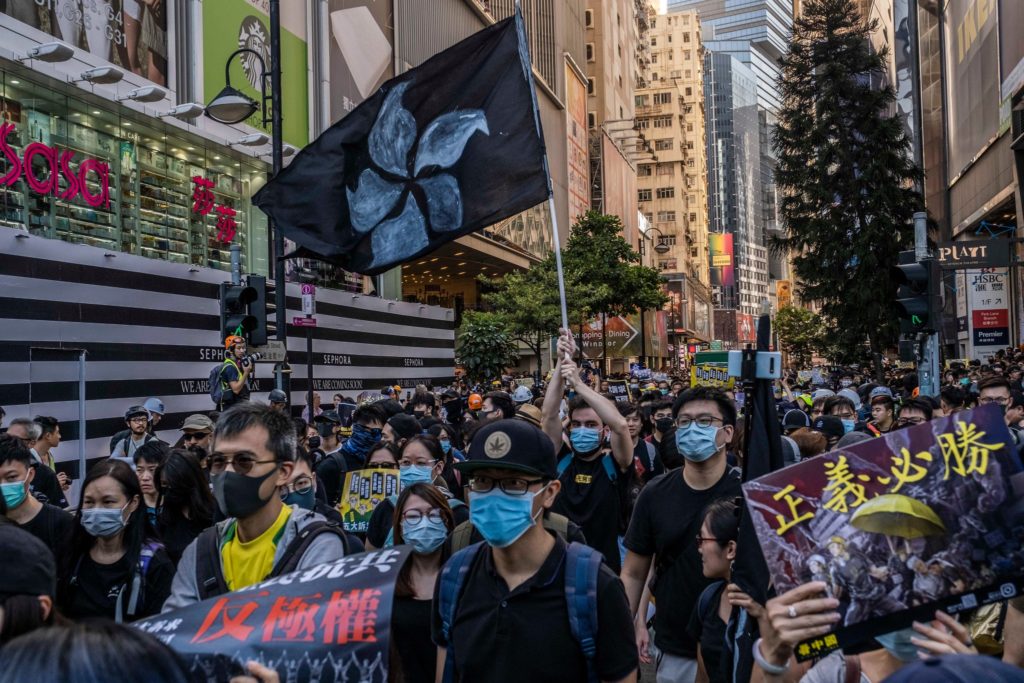Derk Bodde and Why We Need to Restore the China Fulbright Program

It often comes as a surprise to most Americans when they learn that the first country to participate in the Fulbright program was not the United Kingdom, where the Rhodes and Marshall scholarships send students, or even a country in Europe. Rather it was China. And it would be Derk Bodde, a Chinese historian, fluent in Mandarin, who would earn the title of America’s first Fulbright scholar.
Soon after the U.S. and China signed the Fulbright agreement on November 10, 1947, Bodde wrote to the Fulbright Board. For months he heard little. But in March 1948, the Fulbright Board called Bodde, asking if he would accept a scholarship to China. The Board needed an immediate response since it planned to issue a press release that day announcing that the Fulbright program had begun. Bodde replied yes and five months later he, his wife and eight-year-old son were on a boat to Beijing. “Such was the unorthodox beginning to an unorthodox journey which was to culminate in a decidedly unorthodox year in China” Bodde would recount two years later in his memoir, Peking Diary: A Year of Revolution
Bodde’s time in Beijing would be unorthodox because he, and the 20 other China Fulbrighters, arrived as China was in the midst of a civil war. When World War II ended in 1945, so too did the ceasefire between the ruling Nationalist party (“Guomindang” or “KMT”) and the insurgent Chinese Communists. By the time Bodde arrived in August 1948, Beijing was on the cusp of falling into Communist hands, an event that occurred on January 23, 1949, midway through his time there.
But Bodde would complete his full Fulbright year and would share his experiences in his 1950 memoir, Peking Diary. With accounts showing the efficacy of the Communists’ initial rule in Beijing – clamping down on run-away inflation, adding order to a society that had gone astray, returning students back to classes, promising an end to government corruption, and responding to the people’s grievances – Peking Diary was instrumental in explaining why the people of Beijing readily accepted Communist rule. Bodde, reading various Chinese newspapers daily, also reported that the Communist takeover in China was not some Soviet-led effort, the reigning orthodoxy of Washington, D.C foreign policy circles. Instead, Bodde saw the Chinese Communist revolution as uniquely Chinese, a response to the deep problems plaguing Chinese society. U.S. policymakers ignored this reality at their peril Bodde maintained.

Peking Diary, with its eyewitness account from an American fluent in Mandarin and familiar with the culture, shows just how foolish the Trump Administration was to terminate the China and Hong Kong Fulbright programs, an action it took in its July 14, 2020 Executive Order. The Fulbright program has been vital in deepening U.S. policymakers’ understanding of China, with Fulbrighters returning from the country, sharing their experiences and their perspectives. Bodde is just one. More recent China Fulbright scholars have testified before Congress, have published op-eds, have written various reports and have broken the story of the mass internment of Uighurs in Xinjiang. All of these efforts gives U.S. policymakers a much more nuanced perspective of China.
Senator J. William Fulbright, the architect of the program, never wanted it to be used to promote the U.S. government’s foreign policy goals such as providing information to government policymakers. For him, the Fulbright program had one goal: world peace through the humanizing of other cultures and people. “If international education is to advance these aims – of perception and perspective, of empathy and the humanizing of international relations – it cannot be treated as a conventional instrument of a nation’s foreign policy. Most emphatically, it cannot be treated as a propaganda program designed to ‘improve the image’ of a country. . . .” Fulbright told an audience in 1967, after seeing his program exploited during the Cold War for U.S. foreign policy goals.
Mutual understanding of other cultures, which in turn fosters peace among people, is and should remain the Fulbright program’s primary purpose. But as much as Senator Fulbright may not agree, we can’t ignore that the program does serve to educate the U.S. government in understanding a country that for the last 40 years has been in a state of constant transformation.
But, with the termination of the China and Hong Kong Fulbright programs, we lose this crucial information source when we need it most. For the first time in recent history, China is emerging on the world stage, not to play a bit part but to be the director of the show. It’s imposition of the Hong Kong National Security Law, which ignores its obligations under international treaties and disregards Hong Kong law, reflect that fact. Today, one could imagine another “Diary” written by a Fulbright fellow except this diary would be situated in Hong Kong with a people rejecting Communist rule instead of welcoming it. Unfortunately, with the Fulbright program terminated in Hong Kong and China, that book will not be written.

If world peace alone is an insufficient reason for the Biden administration to reinstate the China and Hong Kong Fulbright programs, our own self-interest should be enough. The knowledge that Fulbright fellows bring back to the United States is vital to the country’s interests and its national security. The Biden administration must modify the July 14 Executive Order by revoking the provision terminating the Fulbright program in China and Hong Kong. Why would we put ourselves at a disadvantage?
To see our earlier essay recounting the history of the Fulbright program and its success in China, click here: Biden Should Bring Back the China Fulbright Program on SupChina.
 On Facebook
On Facebook By Email
By Email 